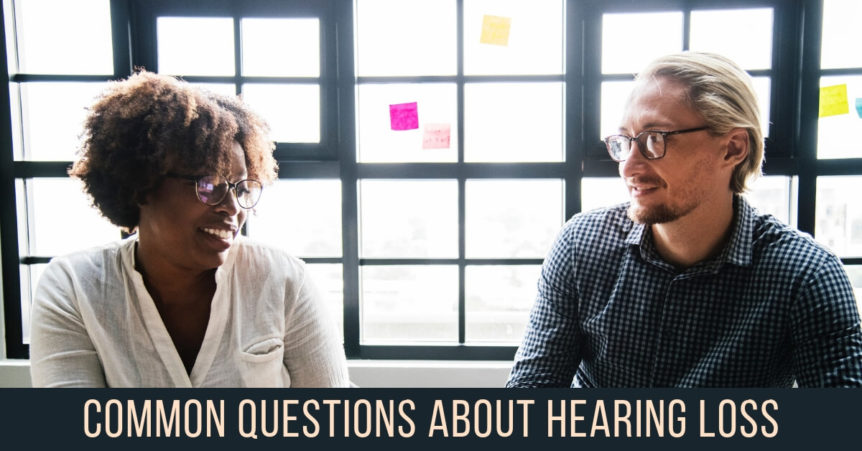There are myths surrounding hearing loss and many people put off getting hearing evaluations and even when diagnosed with hearing loss put off getting hearing aids. Hearing tests at Neighborhood Hearing Aid Centers are painless, noninvasive and take about an hour and a half. Our professional staff is committed to making you comfortable during the test, fully discussing your treatment program and giving you personalized service before and after you get your hearing aids. Give us a call today to make an appointment. Here are some common misconceptions about hearing loss and some information to clear them up for you.
Hearing loss causes
Hearing loss is caused by natural aging but also when you are exposed to a sudden loud noise or prolonged exposure to loud noise. One sudden sharp noise can damage your hearing, but exposure to noise every day – like at a manufacturing facility – can lead to noise induced hearing loss. All types of hearing loss are treatable.
A loud noise, over 85 decibels, damages the hair cells in your inner ear. These delicate cells do not regenerate. Firearms, motorcycles and power tools fall into the loud noise category.
Hearing loss related to aging is called presbycusis and it occurs naturally as we age. One in three people in the United States between the ages of 65 and 74 have age-related hearing loss.
Age related hearing loss is gradual and occurs in both ears.
The symptoms of noise-induced hearing loss are a feeling of fullness in the ears, hearing conversation as muffled and a ringing in the ears. Symptoms of age related hearing loss is starting to have issues hearing higher pitched sounds first.
Is my general health harmed by untreated hearing loss?
Studies here and in Europe show individuals with untreated hearing loss are more prone to accidents. Your brain works overtime to process sound when you have hearing loss and that means other senses can suffer.
People with hearing loss isolate themselves because they don’t want to deal with trying to hear what is going on and/or explaining why they can’t hear. Sound processing when you are only hearing bits and pieces is physically and mentally exhausting.
Trouble hearing means difficulty understanding and following instructions from a doctor, you might not hear alarms in your home or the phone, doorbell or the alert from the oven that your dinner is done.
I just have hearing loss in one ear so why should I get hearing aids?
You may think you are hearing better in one year, but it is likely you are experiencing hearing loss in both. Age-related hearing loss occurs in both ears and most types of hearing loss are corrected with hearing aids in both ears.
Only old people have hearing loss
All age groups are affected by hearing loss. Six million people between the ages of 18 and 44 in the United States have some hearing loss and more than 1 million school-age children have hearing loss.
If hearing loss is normal, why shouldn’t I just deal with it?
If your vision needs correction because you are getting older, you get glasses, contact lenses or have cataract surgery, right? Why wouldn’t you get your hearing corrected? You aren’t embarrassed to wear glasses, why would you be embarrassed to wear hearing aids?
Won’t people treat me differently if I have hearing aids?
Untreated hearing loss is going to make people treat you differently. They are going to think it’s odd you can’t hear at restaurants or you respond inappropriately to comments. What happens if you don’t hear something while you are driving?
Everything is going to be loud with hearing aids.
Hearing aids are tiny fabulous amplifiers. They adjust directionally to sound and can even help you pick out conversation sound from background noise. Many of the new models have a GPS feature so if you had to adjust the sound somewhere, your hearing aid will remember when you return to that location and adjust again without you doing anything.
Will I be able to hear right away with hearing aids?
There is an adjustment period with hearing aids. Your ears and your brain have to catch up with sound processing. Most people adjust within three weeks and are very happy with their hearing aids. At Neighborhood Hearing Aid Centers, we let you test drive your hearing aids with free trial periods. We can answer the rest of your questions when you call a Neighborhood Hearing Aid Center and schedule an appointment.

